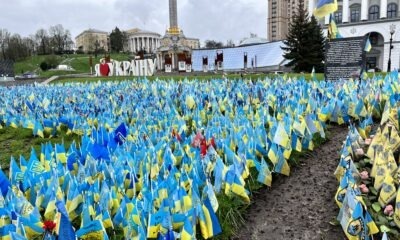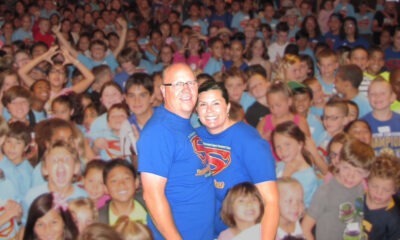Featured Articles
¿Cómo nos juzgará la historia?
Published
5 years agoon
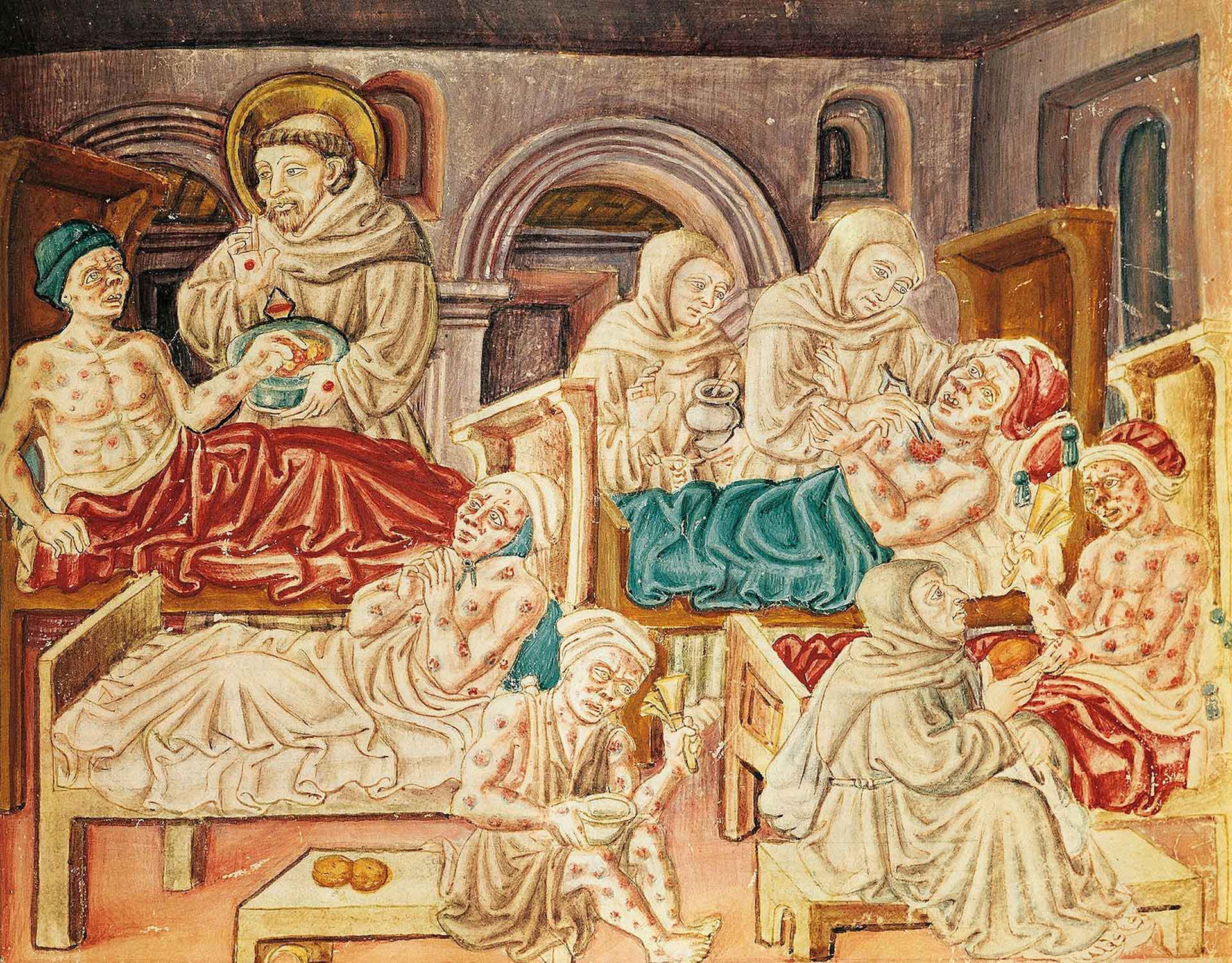
Por Bill Francavilla
Cada vez que hay un evento catastrófico me veo obligado a aferrarme a mis raíces como un mayor de historia. Lo primero que quiero saber es si esto ha pasado antes y ¿cuál habría sido la respuesta correcta en el pasado?
El mundo de hoy no es tan diferente de antes, y desafortunadamente, no necesitamos mirar lejos para encontrar una plaga. En Cesarea del siglo IV, cuando estalló una plaga, el historiador cristiano Eusebio nos da un relato impresionante de los acontecimientos:
Durante todo el día algunos de ellos [cristianos] tendían a los moribundos y a su entierro, innumerables números sin nadie que los cuidara. Otros reunieron de todas partes de la ciudad a una multitud de personas marchitadas por la hambruna y les distribuyeron pan.
Estoy deseando conocer un día a nuestros hermanos y hermanas del siglo IV que desafiaron las calles de Cesarea para la gloria de Dios. Me hace preguntarme cómo la historia juzgará a nuestra generación actual. ¿Qué leerá la gente sobre nosotros siglos a partir de ahora? ¿Creerá la gente que entramos en pánico ante el primer signo de estrés? ¿Nos verán un despreocupado? ¿O verán a un pueblo valiente que se levantó a la ocasión cuando una gran tarea estaba ante nosotros?
Cuando escuché por primera vez sobre el Coronavirus, rápidamente lo descaré como un engaño. Pensé: “Los medios de comunicación están en ello de nuevo, tratando de asustarnos en otra narrativa”. Pero en las próximas semanas vi más informes procedentes de otros países en los que deberíamos estar preparados para lo que estaba por venir. Mi negación estaba vacilando.
Entonces una noche a mi esposa le enviaron un video, y por primera vez tuve miedo. Vi imágenes de varias personas en un hospital de Wuhan desmayándo y diciéndo a la cámara que lo que está sucediendo debe tomarse en serio. Inmediatamente buscamos ayuda de la única fuente que sabía que traería consuelo. Empezamos a orar juntos.
En los próximos meses me encontré hablando con muchas personas con una amplia gama de respuestas. Una pareja me dijo que no saldrían de la casa mientras que otra se negaba a usar una máscara en ninguna circunstancia.
En el momento en que la gravedad de la situación se hizo real para mí fue cuando un querido amigo mío fue diagnosticado con COVID-19 y enviado al hospital. La iglesia se levantó a la ocasión y buscó la sabiduría del Señor a través del ayuno y la oración, mientras apoyaba a su esposa y a sus tres hijos. Por la gracia de Dios, a pesar de que estuvo muy enfermo durante seis largas semanas, sobrevivió.
Estos últimos meses han sido un torbellino para cada uno de nosotros, y no puedo evitar notar dos reacciones populares: miedo y negación.
La multitud que ha gravitado hacia el miedo siempre es rápida para ponerse la máscara y usarlo, incluso cuando está solo en el coche. He visto imágenes de vídeo de personas gritando y golpeando a otros por no seguir su ejemplo. Están decididos a escuchar todo lo que el gobierno tiene que decir y seguir estrictamente las órdenes.
La otra respuesta es la negación. Este grupo se dirá a sí mismo y a todos los demás que no hay nada que temer; esta es sólo otra conspiración que pronto será expuesta. Estas personas confían en sí mismas para superar esto a pesar de que todavía hay casos que se reportan y personas que mueren.
Puedo entender estos dos grupos. Eso no significa que tenga razón. No creo que Jesús quiera que actuemos con miedo o negación y no creo que él quiera que confiemos en el gobierno o en nosotros mismos.
Como pueblo de Dios, necesitamos proceder con sabiduría. La sabiduría no pone su confianza en el gobierno o en el individuo. Se encuentra en la búsqueda de Dios. Obtener sabiduría puede parecer una tarea desalentadora, pero es más fácil de lo que pensamos. Santiago 1:5 “Si a alguno de ustedes le falta sabiduría, pídasela a Dios, y él se la dará, pues Dios da a todos generosamente sin menospreciar a nadie”.
La sabiduría es un don de Dios. Un hombre llamado Salomón fue encontrado en una situación en la que de repente se le dio el control sobre el pueblo de Dios. Su hermano ya había intentado usurpar el trono y su familia tenía muchos enemigos. Estoy seguro de que estaba estresado por lo que estaba por delante. Afortunadamente Salomón fue lo suficientemente inteligente como para pedir sabiduría a Dios y se dio libremente (1 Reyes 3).
En el momento de este escrito, nuestro país ya se enfrenta a un nuevo desafío con la muerte injusta de un hombre afroamericano desarmado. Es una farsa en todos los sentidos de la palabra y estas dos reacciones, el miedo y la negación, se están insertando una vez más en la situación. A algunas personas les gustaría enterrar sus cabezas en la arena y decirnos que no hay ningún problema que se hace frente, mientras que otros temen que el tejido mismo de la sociedad se esté desmoronando. Necesitamos sabiduría ahora más que nunca.
Debemos preguntarnos a nosotros mismos y a aquellos que están sufriendo cómo podemos aplicar sabiduría a esta situación. ¿Vamos a permitir que el miedo y la negación gobiernen el día o podemos ser más como un joven rey que humildemente le pide a Dios que haga Su obra mejor?
La historia nos juzgará sobre cómo respondemos a las crisis de hoy. Ahora más que nunca es el tiempo de Dios para brillar mientras mostramos al mundo quién es. Ruego que esta generación elija la sabiduría sobre lo que el mundo trata de ofrecer.
About the Author

Bill Francavilla, pastor principal de la Iglesia Relevante en Williamsburg, Virginia, ha vivido en Virginia casi toda su vida. Asistió a Lynchburg College, donde estudió historia y teatro. En 2017 Bill recibió su maestría en estudios teológicos de la Liberty University. Ha participado activamente en misiones a México, República Dominicana y Cuba. Bill y su esposa, Jessica, tienen cuatro hijos: Alex, Liam, Rita Grace y Gino.
Featured Articles
Burden Bearing in the Church: How We Can Do It Better
Published
2 months agoon
April 25, 2025By
Anne Beem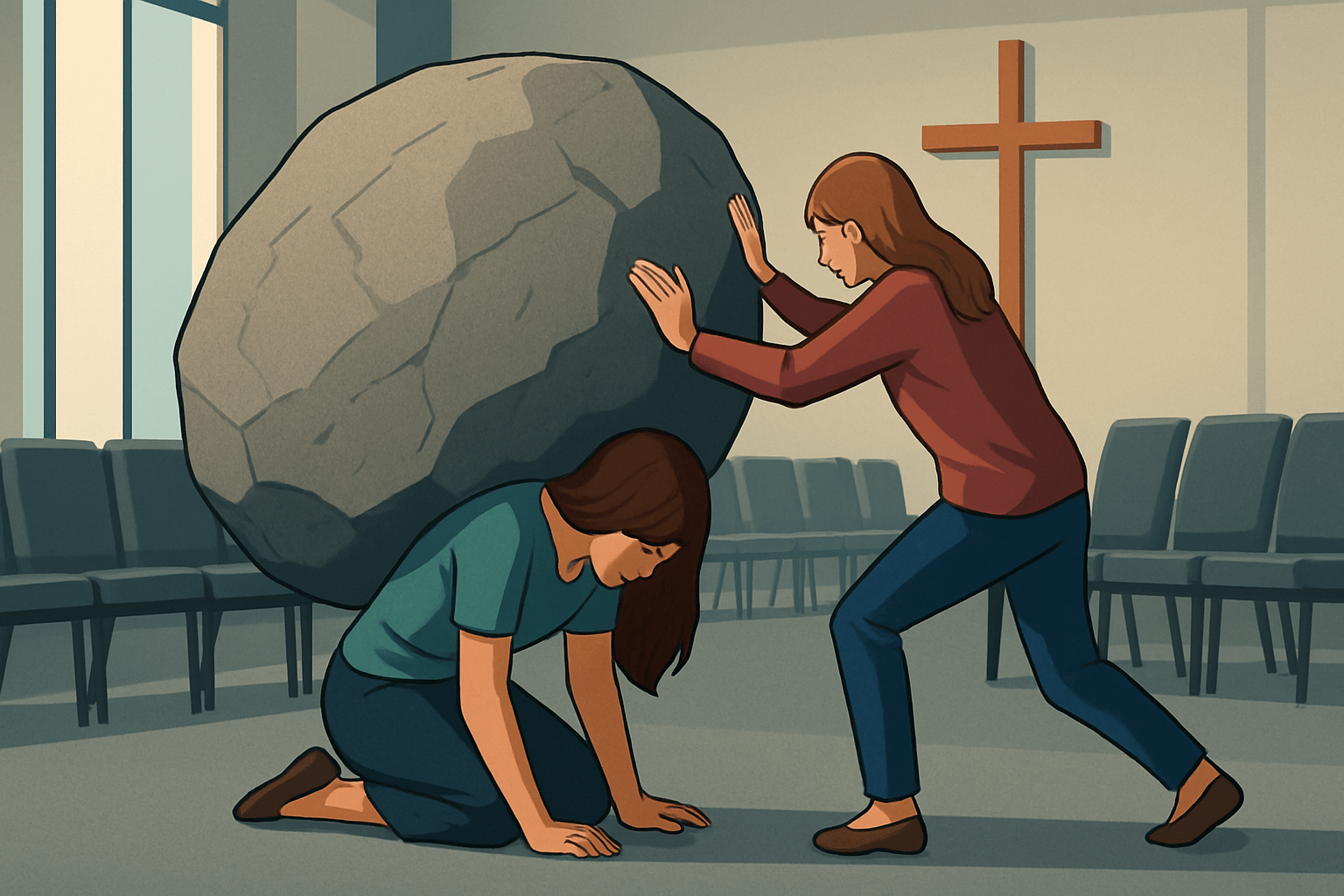
When my children were young, God asked me if I trusted Him with their testimonies. Having worked as a church counselor, I wish my immediate answer was “Of course, Lord!” But instead, my most honest answer was “No! I see what you do with people’s testimonies!” I knew that to have a testimony of God’s work in their lives, people had to first go through pain and turmoil. Allowing my children the pain necessary for a testimony was one of my biggest fears. It wasn’t until nearly fifteen years later that I was able to humbly change my answer.
I can recount hundreds of stories of God’s faithfulness to bring beauty from ashes as He promises in Isaiah: “To bestow on them a crown of beauty instead of ashes, the oil of joy instead of mourning, and a garment of praise instead of a spirit of despair” (61:3). That’s easily the most rewarding part of working for Jesus (whether in my role as counselor, disciple-maker, or friend). When someone has experienced healing from their trauma, restoration in a relationship, or forgiveness for themselves and others, I have taken a front row seat to the beauty of a testimony rising out of the ashes of life’s pain. These are the stories I keep tucked away in my heart for building hope when it seems all hope is lost. When life’s hardships make it easier to identify with Job’s despair than with Paul’s rejoicing, I need those stories of redemption to give me hope – to give others hope.
We try throwing scripture at pain from a distance, bandaging gaping wounds with platitudes.
It was when I had to find some hope to offer my daughter as she faced a devastating mental health diagnosis that my theology and mental health practice had a head-on collision in my very own home. God lovingly asked me again, as He has throughout the years, if I trusted Him with my children’s testimonies. I would be lying if I said my answer didn’t require both deep digging and anguished prayer. My hope was only in Him; I knew beyond a shadow of a doubt that God didn’t bring her this disease or its pain. That was part of the fall of man and its effects on creation – an enemy scheme. God didn’t promise my daughter wouldn’t face pain, but He did promise that when life brought it, He would use it for her good. He will shine His light in her darkness, use her healing to repair the breaches in others’ lives – all for His glory. I can finally wholeheartedly say that I do trust God with her testimony.
It is in these dark and scary places that the church often misses the mark. We aren’t well-equipped to bear one another’s burdens. We subconsciously worry that the dark places in others might consume us too. We try throwing scripture at pain from a distance, bandaging gaping wounds with platitudes. Burdens can’t be carried from an emotional distance.
Remember the places where the church has best served you in your brokenness. I think you will find that it was in relationship, when someone sat with you in your pain, either in silence or humbly asking questions rather than preaching or talking about their own unresolved pain. The only time Job’s comforters were doing a good job is when they sat silently in the ash heap with him. Sometimes being a silent witness in other’s suffering is the most sacred thing you can do. This simply cannot be done in the few minutes of an altar call or from an emotional distance. It’s not until we’ve proven we are driven by love and grace, without an agenda for behavioral change, that we will be trusted with the most imprisoning parts of a person’s story.
It’s not until we’ve proven we are driven by love and grace, without an agenda for behavioral change, that we will be trusted with the most imprisoning parts of a person’s story.
I’ll let you in on a secret: you don’t have to be the pastor or church counselor to help people walk in emotional and spiritual health. Most of the counseling I’ve done has been discipleship – teaching people the ”how-to’s” of the Bible: how to forgive, how to not be anxious for anything, how to break the power of lust, how to guard your heart in very practical, boots-on-the-ground ways. And yet, if you don’t understand how to apply biblical principles to your own emotional health, you won’t be comfortable in the dark and scary places of others’ struggles. Matthew Henry’s commentary on Galatians 6 says it well: “The better we know our own hearts and ways, the less shall we despise others, and the more be disposed to help them under infirmities and afflictions.” If you aren’t sure how to help others in their pain, being a silent, praying witness is a great place to start. In that silent place, collect the promises of God from scripture. Get to know His character and His love for His people. When you yourself can trust God’s unfailing goodness, you will be able to pass it on to others. Isaiah and Ephesians are great places to start this treasure hunt.
We need to become a people that know how to get our hands dirty and apply the mud of scripture to the eyes of each other’s hearts in a way that invites restoration. We need to know where to find the keys that set the prisoners free. As individuals and as church bodies, we can help others apply the “how to’s” of scripture. I LOVE when churches teach Financial Peace along with praying for financial breakthrough. I LOVE when churches have recovery programs that walk spiritual captives through steps of freedom. I LOVE when churches teach boundaries and healthy relationship skills. I LOVE when churches have connections with community health programs that treat the whole triune person: mind, spirit, and body. I don’t believe medication minimizes one’s faith; oftentimes, it gives a person the boost they need to come to the starting line of the race we’re all trying to run for the kingdom. It can be a necessary tool in applying scripture to their lives.
We all know that hurt people hurt people, but what’s even more powerful is the mustard seed growth of watching healed people heal people. A person who has learned to apply the gospel of Jesus to their own dark and scary places is the person who is best able to shine His light for another. When it comes to the integration of mental health and spiritual health in the Church, that is the aspect which excites me more than anything.
About the Author
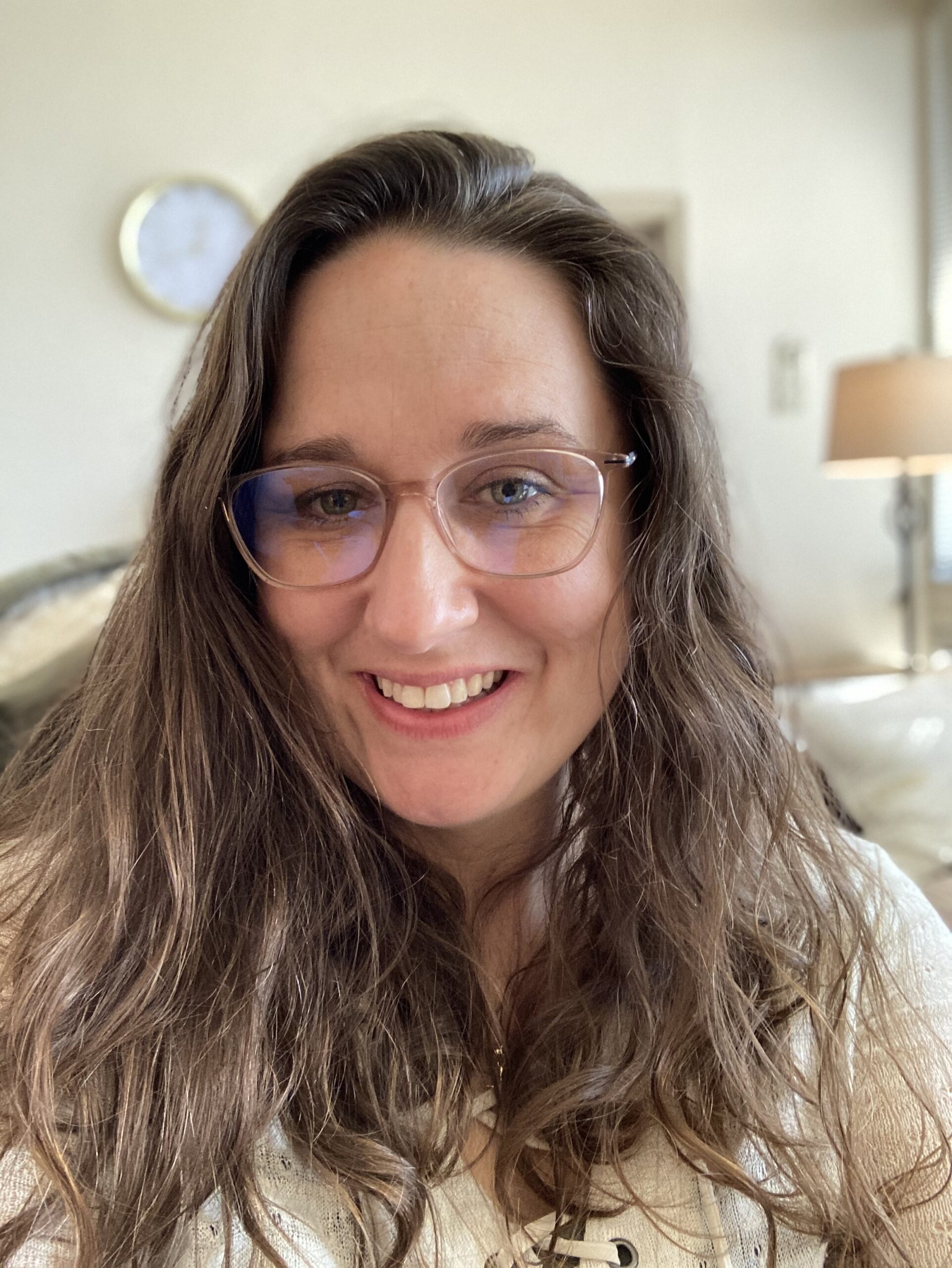
Anne Beem
Anne Beem is a Eugene Bible College alumnus living outside of San Antonio, Texas, with her husband Chuck and their three daughters. She has spent much of her counseling career starting counseling ministries in churches and consulting with pastors in providing soul care to their church members. She is currently an adjunct psychology professor at George Fox University and provides counseling services to ministers and their family members. Anne’s favorite hobbies include friend collecting, traveling, and reading all of the books.
Featured Articles
My Journey: Finding God’s Refuge During Wartime
Published
4 months agoon
February 27, 2025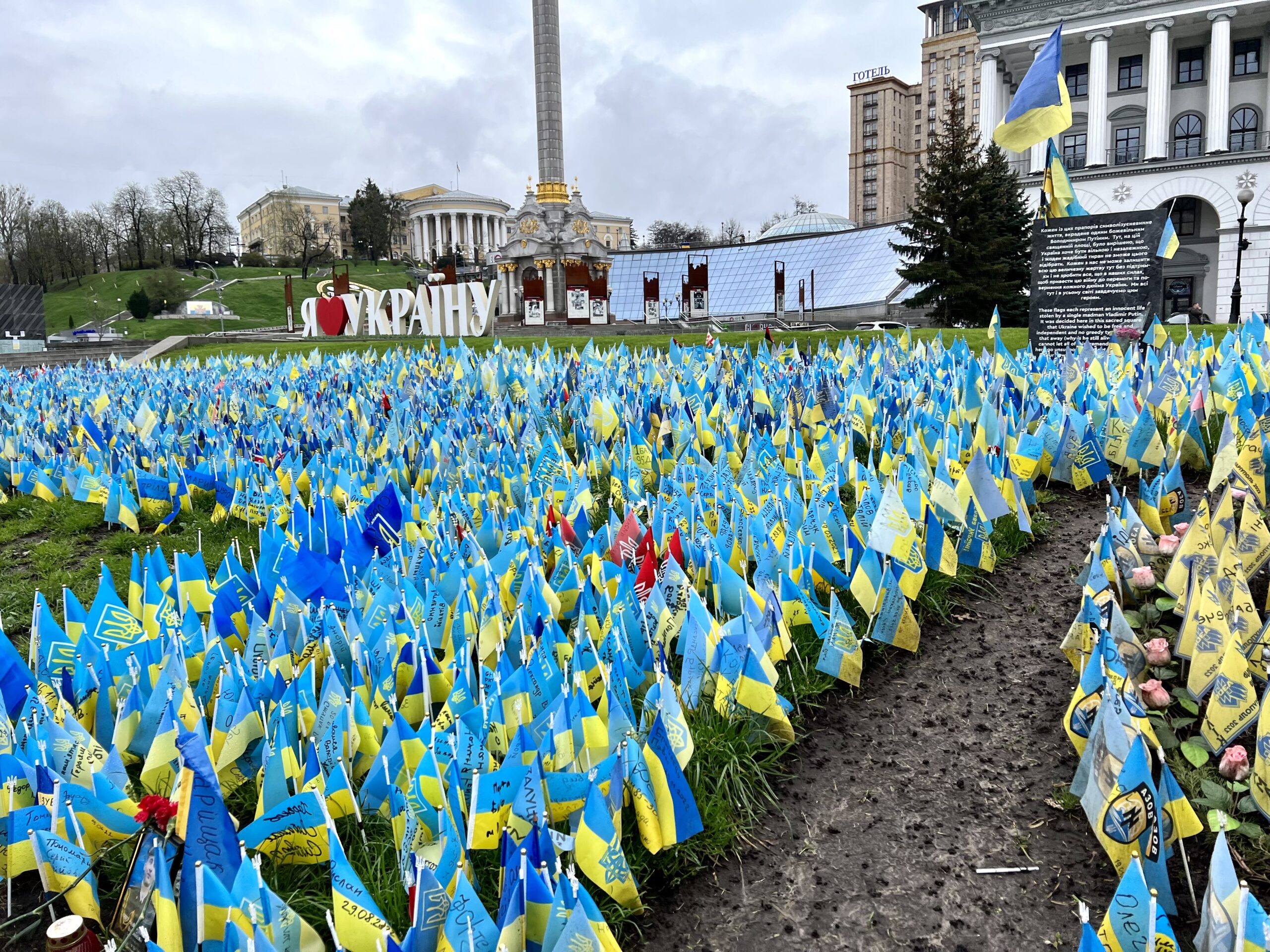
Living and serving in a foreign land involves adjusting to new cultures, languages, and realities. Over my thirty years as a missionary, I’ve faced these challenges in multiple countries and languages. Yet, none of my experiences could have prepared me for the realities of war—its impact on life, ministry, and faith.
I had lived in Ukraine full time for thirteen years when the initial invasion occurred in 2014. The conflict was terrifying but distant from me; over time, I learned to navigate the stress of the threat of violence and the uncertainty that seemed to linger everywhere. But everything changed on February 23, 2022, with the full-scale invasion. Ukraine entered a dark chapter with an unknowable future, and so did I.
… everything changed on February 23, 2022, with the full-scale invasion. Ukraine entered a dark chapter with an unknowable future, and so did I
I spent the first few months of war in the United States. While physically “safe,” my heart remained with Ukraine. I wanted to be with the INSTE community, neighbors, and other loved ones who had become my family, not just because of my love and concern for them but because there is power in presence; there is a powerful ministry of simply being with others in their suffering. Just as God promises in Psalm 91:15 (NIV), “I will be with him in trouble,” I felt compelled to personify that presence for Ukrainians.
Returning to Ukraine in October 2022 meant facing new unsettling realities. Air raid sirens, missile strikes, and weaponized drones are part of daily life. Psalm 91:5 promises, “You will not fear the terror of night, nor the arrow that flies by day,” yet living this truth is challenging. In 2024, attack drones or missiles filled Ukrainian skies every single day and night. Fear is a natural response to danger, yet courage is trusting God despite fear. For me, each step forward, even with a lump in my throat, is an act of faith.
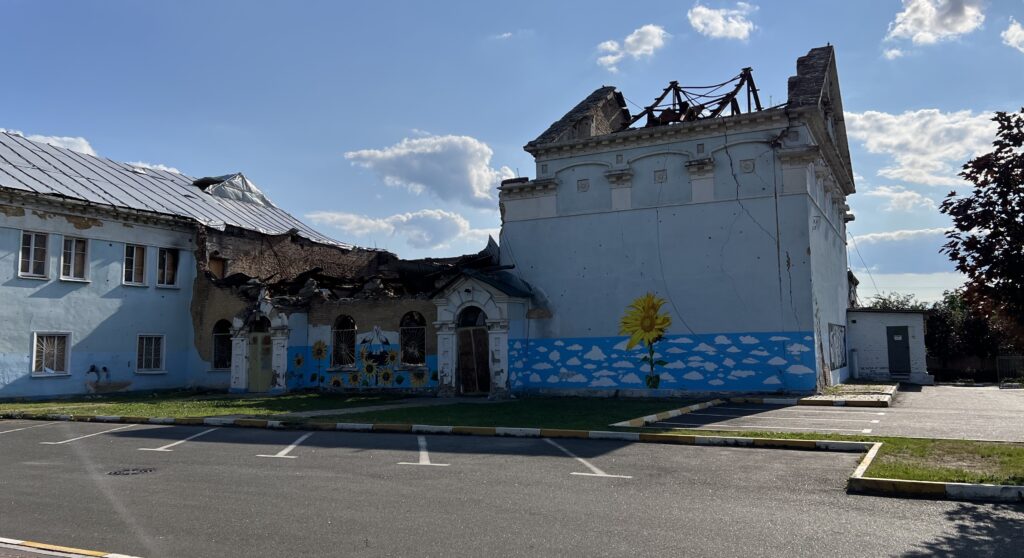
Psalm 91’s promise that God is “with us in trouble” anchors me, helping reconcile the tension between “not fearing” and “doing things afraid.” Fear doesn’t disqualify us from obedience; it’s often the very place where we find God’s will and experience His presence in profound ways.
My main ministry has always been equipping leaders through INSTE Global Bible College, but my focus has shifted during the war. In this season the Lord has allowed me to minister to humanitarian needs of Ukrainians with the help of Open Bible sponsors and a wide network of friends and ministry partners. For independent teen orphans, we’ve provided power banks and lamps for long nights without electricity.
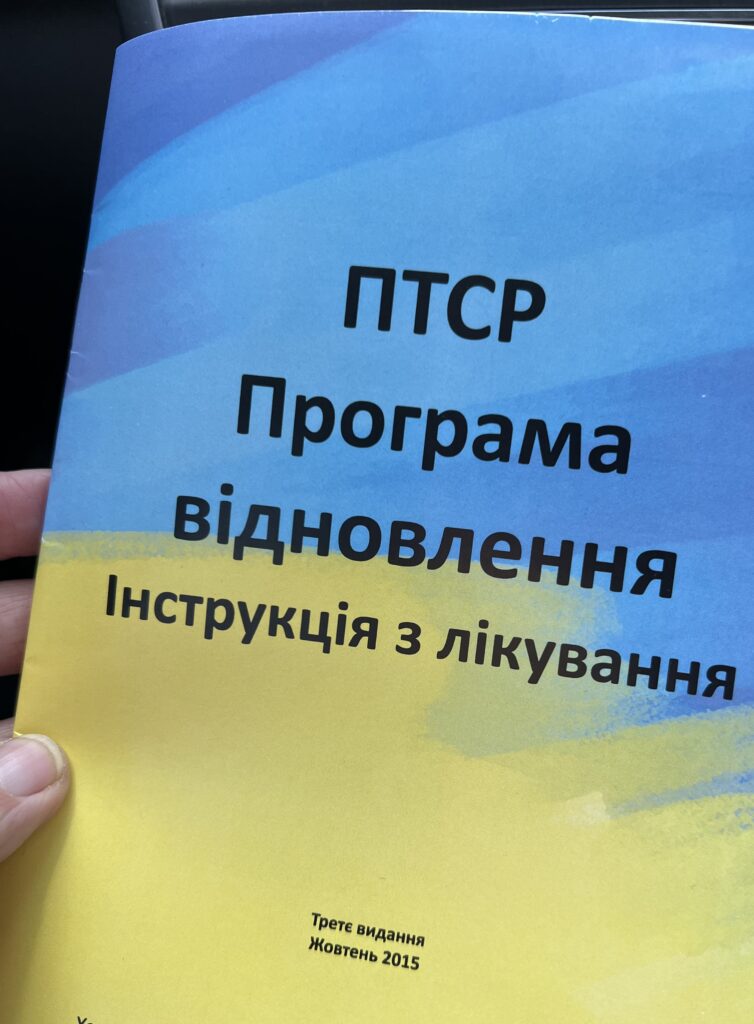
Other times, we’ve purchased medicine for sick neighbors and helped seniors pay for medical procedures. For those along the frontlines, we’ve sent financial aid, clothing, and prayers. We have also translated, printed, and distributed thousands of booklets that teach how to deal with PTSD.
While others deliver large-scale humanitarian aid, my role is one of smaller, personal acts of kindness. In the market, I look for “Holy Spirit nudges” and find struggling grandmothers to bless with money for food, blessing them and reminding them that God sees their need. Each of these actions, though small, serves as a tangible reminder of God’s love and light in dark times.
The human cost of war is staggering. Food insecurity, disrupted education systems, and loss of electricity are all daily problems. Families have been displaced and torn apart, some with children attending school in other countries, others with family members on the frontlines, missing in action, prisoners of war, or buried in a grave. Communities have been shattered and the trajectory of so many lives forever altered. Over the years we have had thousands of INSTE students throughout Ukraine; many of their lives have been dramatically changed by this war.
I witness incredible resilience in the defenders who are outnumbered and outgunned on the front lines, the mothers holding families together, and the children navigating unimaginable loss
Despite this, I witness incredible resilience in the defenders who are outnumbered and outgunned on the front lines, the mothers holding families together, and the children navigating unimaginable loss, including a normal childhood. Their resilience reflects the truth that God has not abandoned them. In their stories, I see glimmers of hope – reminders that even in the darkest times, Light shines. Their resilience inspires me.
It has been difficult to deal with the capture of my godson, Max, a nineteen-year-old soldier, by enemy forces. The pain of not knowing his fate is immense. We pray for his soul. Every Ukrainian has their “Max,” someone whose unknown future brings unbearable heartache.
As I reflect on these years of war, I’m reminded of how deeply it has reshaped my life, my understanding of compassion, and my faith. War has tested me in ways I never expected, but it has also deepened my faith.
Psalm 91 continues to be a comfort: not a promise of an easy way, but of God’s presence. It is in His refuge that I find strength to minister and to believe for His promises. And it is there, even in wartime, that I have found God’s refuge.
About the Author
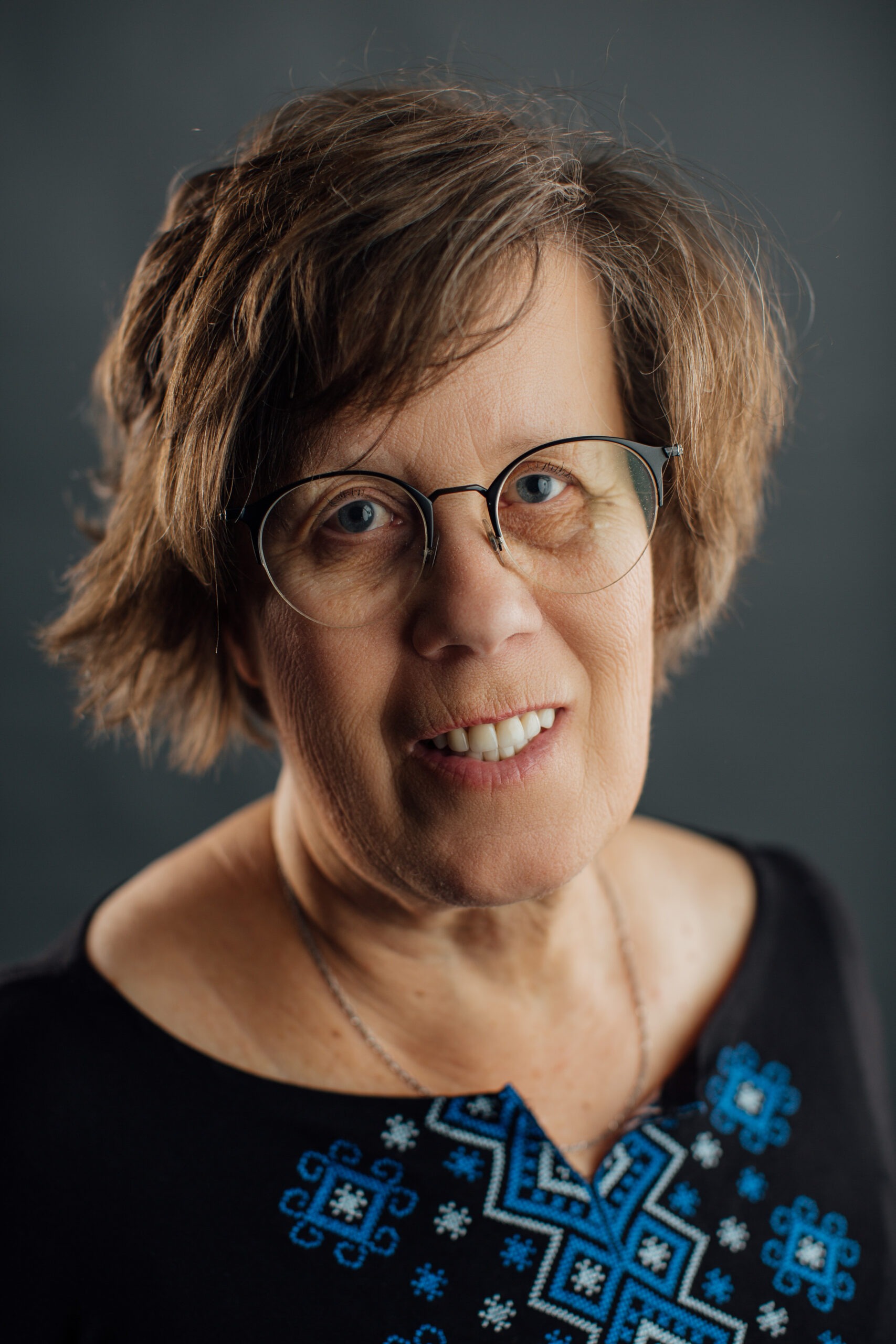
Tammy Swailes
Tammy Swailes is passionate about cross-cultural Christian education, so working with INSTE Bible College to disciple and equip leaders throughout Europe and beyond is a great fit! Tammy has lived in Europe since 1999 – first in Hungary and now Ukraine. Before that, she was in Japan, as well as Spokane, Washington. She now serves as INSTE regional director in Europe, assisting INSTE programs in five languages. Tammy has her undergraduate degrees in both Missions and Christian Education, and a MA in Intercultural Studies. Photography, good coffee, multi-cultural experiences, and the family’s Yorkie are some of Tammy’s favorite things.
Featured Articles
Forever a New Creation: How God Led Me from Refugee Roots to a Life of Mission
Published
6 months agoon
December 20, 2024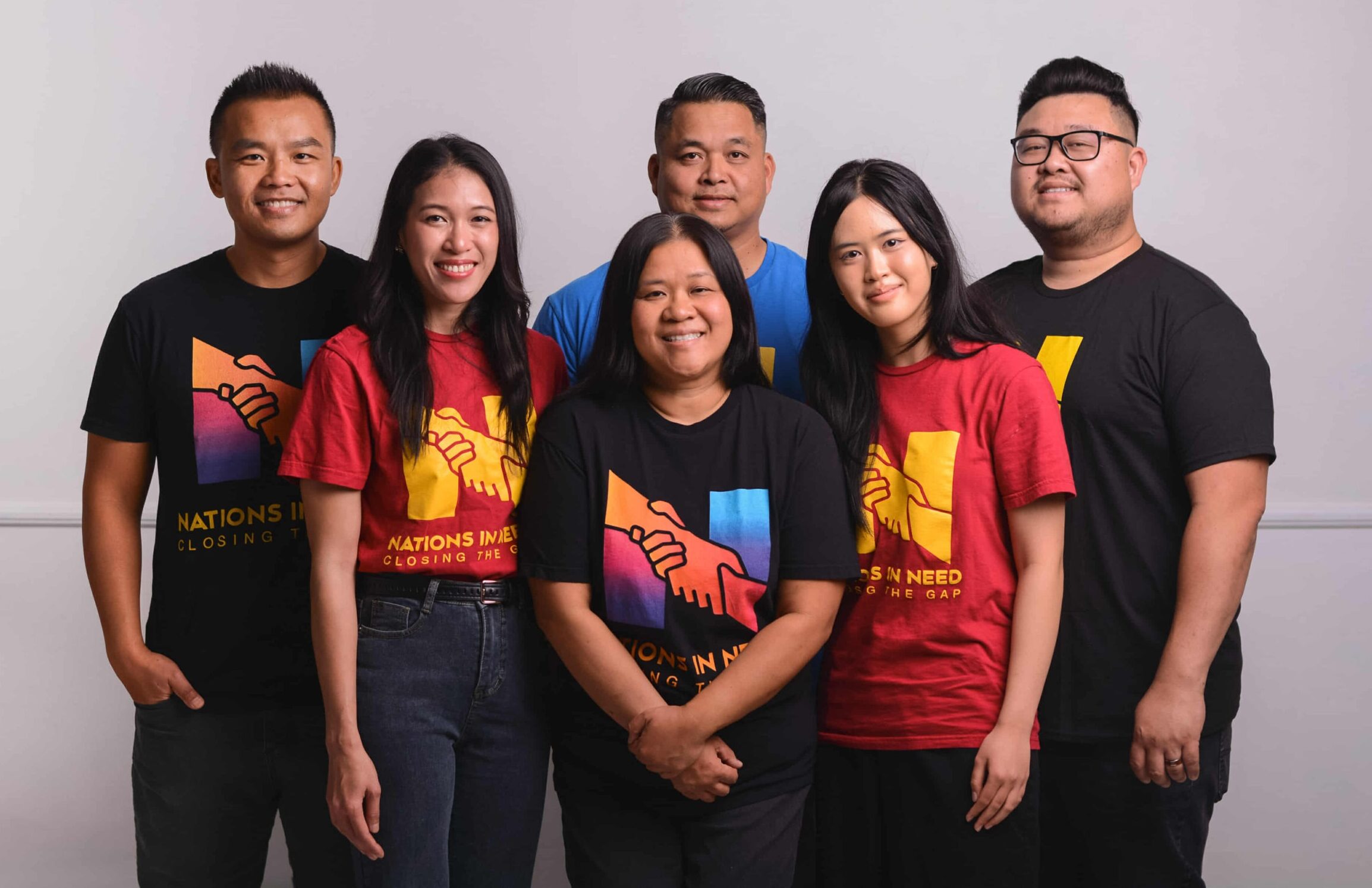
The diaspora of the Tai Dam refugees in 1975 to Des Moines, Iowa, fueled a first generation of Tai Dam Americans adapting to new ways of life, blending language, culture, and embracing the numerous opportunities in the US. I was part of that first generation. Three years after my parents’ settlement in Iowa, I was born and became the first in my family to acquire an American education and step into a church. We were blessed to have Christian sponsors who helped us transition from our homeland to America.
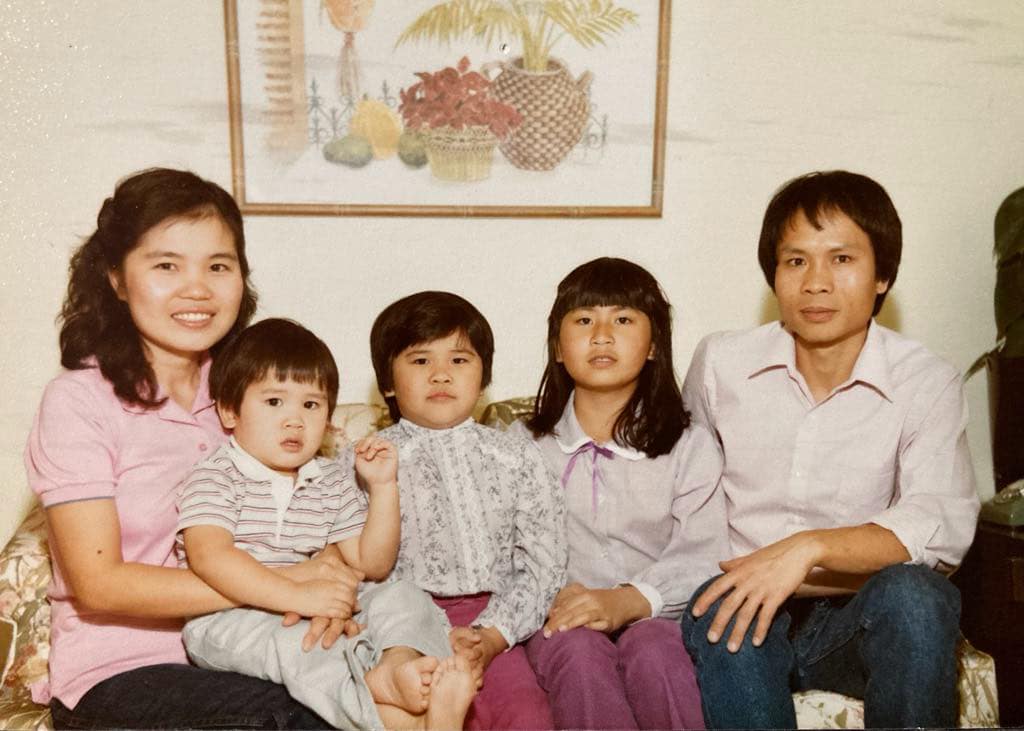
Every Sunday, our sponsors would take me, my sister, and several of my cousins to church service at the First Church of the Open Bible. Naomi Young was one of the many people who was significant in my life; she gave me my first Bible. Through the faithfulness of Naomi and others at the church, seeds of faith were planted as I was told about a man named Jesus who died on the cross for me. I was curious, but I did not understand and did not accept Him into my life at that time. Attending church was short-lived, coming to a halt when I was eight years old. The seed that was planted in me could not grow because it was never nourished with Truth at home. My parents and grandmother believed and practiced animism and ancestral worship, which is the veneration and honoring of the dead. Confusion infiltrated my mind, and my desire to attend church ceased. While I abandoned everything that was taught to me in Sunday school, I always kept my Bible in a special place underneath my pillow because something in my heart could not throw it away.
The seed that was planted in me could not grow because it was never nourished with Truth at home.
When I was twenty-two years old, my cousin took me to a Buddhist temple to have my fortune read. There, sitting in front of me, were three monks. One monk opened his notebook, wrote in it, then read to me my childhood, present life, and future life story up to the time I would turn thirty years old. He then shut his notebook and told me, “I am done.” When I asked him, “Why?” he told me only, “I cannot read you anymore.” That same week I went to a card reader and had my fortune read. Again, he read my childhood, present life, and up to the age I would be thirty, then stopped. I told him, “You are the second person that could not read me past thirty; tell me – do I die?” He quickly gathered his cards, saying only, “I cannot tell you.”
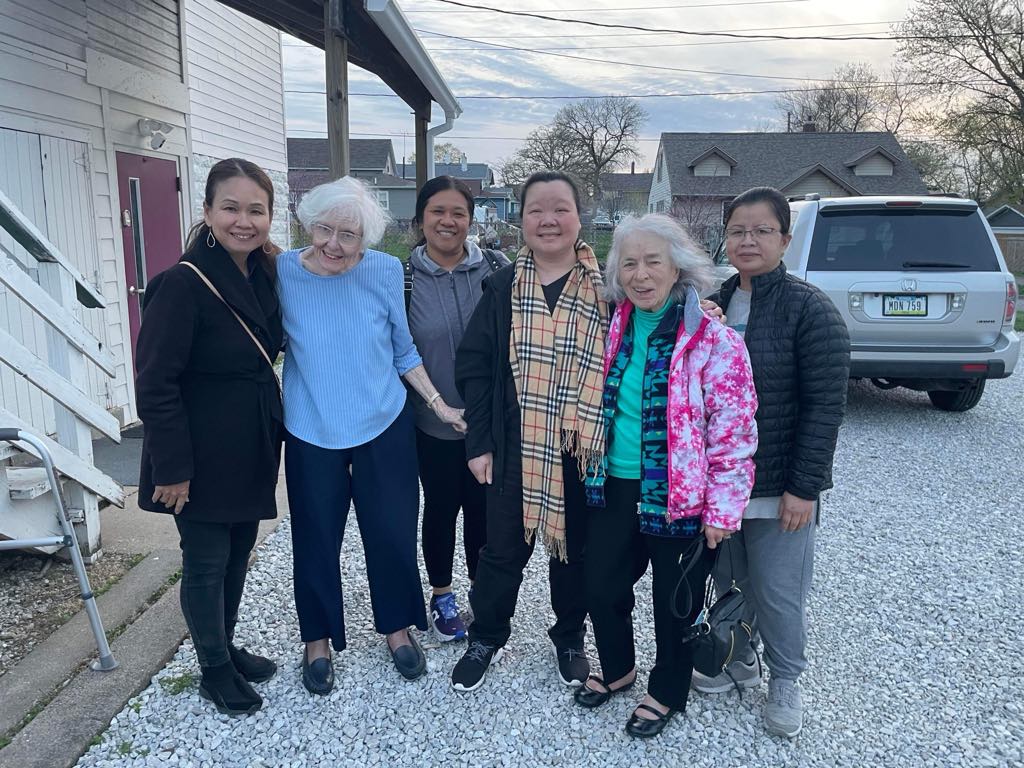
Throughout my adult life in my twenties, I was in an unhealthy, abusive relationship, which led to an alcohol addiction. When I was twenty-six, I became pregnant and had my daughter, Kaylee, on January 31, 2005. God was already working in my life, and I did not know it; He was molding me and reminding me of who He was through the darkest moments of my life. Around that time, I came upon a childhood friend who worked as a cashier at Hy-Vee; she would tell me, “Soukham, God is so good.” Though I resisted, the words she spoke over me resonated in my heart. Not long after, I found myself attending her funeral. Worship and praise were included in the Christian service. I was confused, but a part of me had the desire to know more about the God they said was so good and how through Him there would be no more pain and suffering. When I left the funeral, the Lord continued to reveal Himself to me through divine encounters. In July of 2008, I took a position at Nationwide Insurance where I reconnected with an old high school friend. She invited me to a Thanksgiving potluck at her church, and my walk with the Lord began soon after.
From the Tai Dam little girl who was born in America and met Jesus in an Iowan church, to the woman who is now taking the hope of Christ back to Southeast Asia, His hand has been in every chapter of my story.
I was thirty years old when I accepted Jesus Christ as my Lord and Savior. The verse that will remain with me forever is 2 Corinthians 5:17: “Therefore, if anyone is in Christ, the new creation has come: The old has gone, the new is here!” (NIV).
Now I understand why the monk and card reader could not read my life past the age of thirty. At that age, I became a new creation because of Jesus Christ, and the enemy no longer had a hold on me! Jesus continued to bless me and my daughter. Amid my pain and struggles, God brought a man into my life, my husband Othone (Pong), who became a father to Kaylee. We got married on September 15, 2010. Together the Lord blessed us with two more children, Isaac and Silas. In 2017, the Lord called us to serve in Iowa at Kingdom Life Church (now Kingdom City Church).
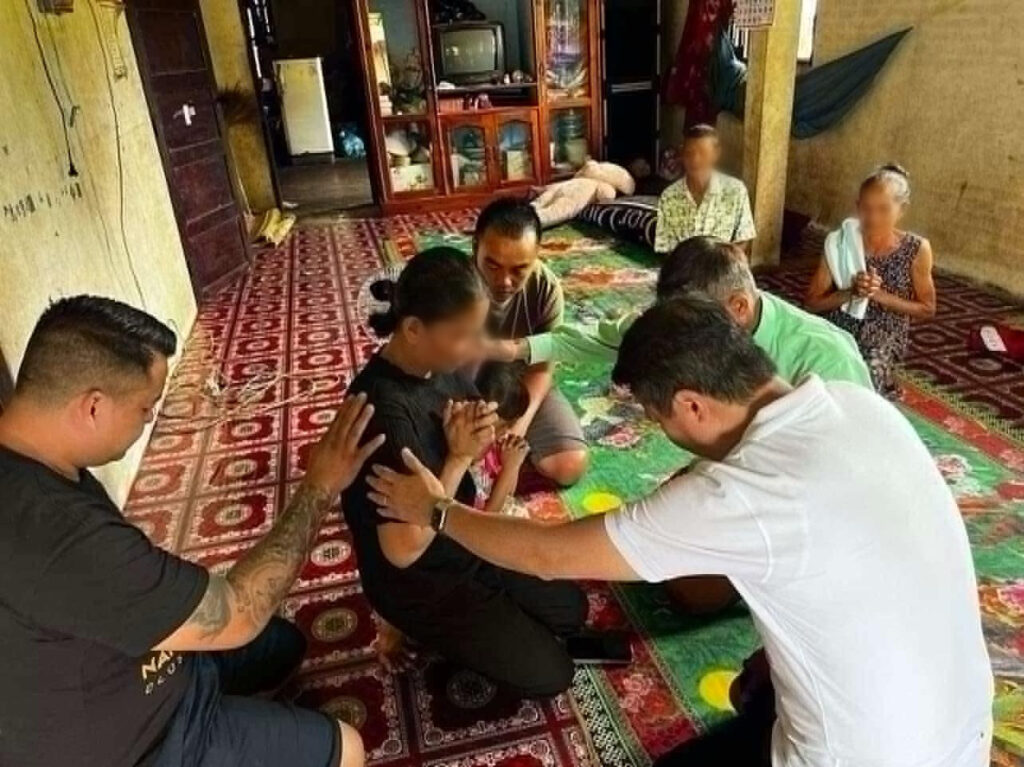
In November 2021, the Lord instilled in Pong’s heart a dream to build a charitable foundation to address needs in the vulnerable communities of Southeast Asia. The foundation would have a Christ-centered vision: to make and equip future disciples, providing them with sustainable resources and empowering them to advance beyond their current situation. Through continuous prayer and the Lord’s guidance, the foundation was born in April 2023 and officially named Nations in Need (NIN). Recently in 2023 and 2024, the Lord took Pong, Kaylee, and three of our brothers, Ap, Peng, and Bay, on trips to Southeast Asia where they built relationships, served the communities, ministered to the people, and spread the good news about Jesus Christ. Today, NIN has branched into multiple communities in Southeast Asia. Through the work of a future center in Southeast Asia, we will expand NIN’s mission and go wherever the Lord leads.
Throughout my whole life God has carried me, even when I didn’t know it. From the Tai Dam little girl who was born in America and met Jesus in an Iowan church, to the woman who is now taking the hope of Christ back to Southeast Asia, His hand has been in every chapter of my story. Whether the next chapter is in America, Southeast Asia, or somewhere else, I will follow Christ, forever His new creation.
About the Author
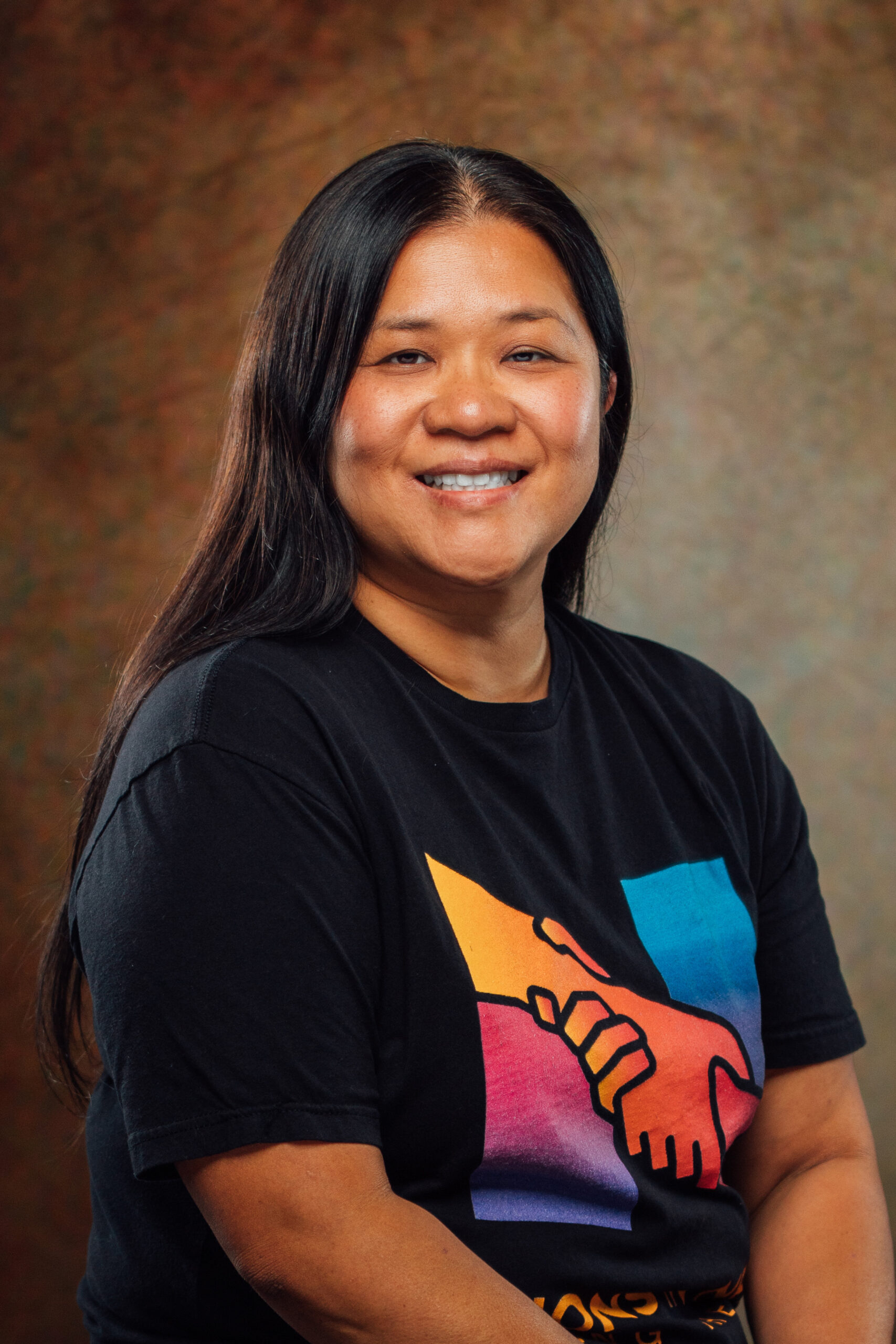
Soukham Khanthavixay
Soukham Khanthavixay and her husband, Pong, are active members of Kingdom City Church in Des Moines, Iowa. They reside in Pleasant Hill, Iowa, with their three children and two dogs. Soukham is a registered nurse at a local county hospital and also works for Nations in Need (NIN), the ministry her husband founded. Her family and ministry team work together to expand the mission of NIN and spread the gospel. To learn more about Nations in Need, follow them on Facebook or Instagram: @nationsinneed.


